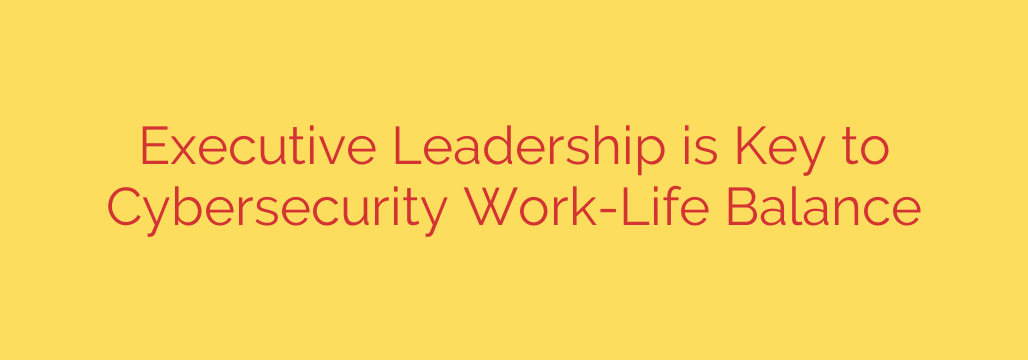
The demanding nature of the cybersecurity field often leads to intense pressure, long hours, and a significant risk of burnout among professionals. Ensuring a healthy work-life balance is not merely a benefit; it is a crucial factor in maintaining the effectiveness, resilience, and retention of skilled cybersecurity teams. The responsibility for fostering this balance rests heavily on executive leadership.
Leaders play a pivotal role in shaping the environment and culture within the organization. They must acknowledge the unique stressors faced by security personnel and actively work to mitigate them. This involves more than just rhetoric; it requires tangible actions.
Key among these actions is setting realistic expectations regarding workload and the demands of emergency response. Leaders should promote a culture that encourages taking necessary time off, disconnects outside of work hours, and respects personal boundaries. Investing in sufficient staffing and appropriate tools can also help distribute the pressure and prevent individuals from being constantly overloaded.
Furthermore, providing access to resources and promoting support for mental health are essential components of effective leadership in this space. When leaders demonstrate a genuine commitment to team well-being and actively work towards burnout prevention, they build trust and loyalty.
Ultimately, the strength and sustainability of a cybersecurity team are directly linked to the support and understanding they receive from the top. Cybersecurity leadership that prioritizes and actively champions work-life balance is making a critical investment not only in their employees’ health but also in the organization’s overall security posture by cultivating a healthier, more engaged, and dedicated workforce.
Source: https://www.helpnetsecurity.com/2025/06/24/stacy-wallace-arizona-department-of-revenue-cybersecurity-work-life-balance/








